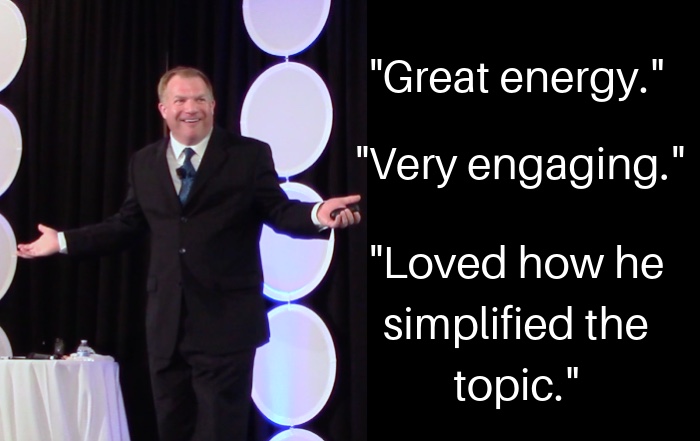 As we enter a busy part of the year, you may be in need of some burnout prevention strategies. Demanding days can hurt any leader’s performance and you shouldn’t be embarrassed if you feel a little out of balance.
As we enter a busy part of the year, you may be in need of some burnout prevention strategies. Demanding days can hurt any leader’s performance and you shouldn’t be embarrassed if you feel a little out of balance.
Burnout continues to be a major cause for concern in our workplace and studies have found that half of those in the workforce suffer from it. I’ve written before about this challenge and how the World Health Organization now refers to burnout as a diagnosable condition.
Sadly, there’s no magic spell that can eliminate burnout. However, some of these burnout prevention strategies may help.
Art or Scribbles?
Are you giving some tasks more attention than they require? It’s good to be thorough but overdoing it can take a lot of time and energy. Neither are infinite resources.
Think of tasks like art or scribbles. Art takes time and focus. Scribbles can be quick and require a lower level of attention. Art hangs in museums and scribbles often end up on post-it notes.
You don’t need every task to be a masterpiece. That’s a trap of perfectionism.
When I worked in TV news, some stories were kind of ordinary and a higher level of storytelling wouldn’t make them much better. I still gave a good effort but didn’t stress out trying to turn something ordinary into something great.
Learn Something New to Prevent Burnout
While you may feel too busy, it can be good to invest time in learning something new. This can be a professional or a personal task that enriches you.
This process will shift your attention from your daily chaos. It also provides you with a sense of control and accomplishment.
The new thing doesn’t have to be big, like learning a new language. It could be mastering a card trick, figuring out how to use a new function on a piece of software, or learning a new word every day.
Practice Worrying as a Burnout Prevention Strategy
Worrying can take a lot of time and energy. Sometimes it’s a wasted effort, as the worst case scenario never happens.
Yet it’s easy to embrace worrying as a default setting in your mind. If you can’t turn off worrying, then maybe you can desensitize yourself to it.
Pick something unimportant to worry about. Let’s say you’re a football fan and in this scenario, you worry about your kicker missing an important field goal.
In your mind, worry about a potential missed field goal and then take the outcome to the extreme. Think of every scenario, especially if they are a little silly.
Would the team, so frustrated by the miss, cease operations? Would fans hold a vigil for the missed kick? Would kicking, in any form, be banned by the city?
When you have all of these extreme outcomes in your mind, suddenly a missed field goal doesn’t seem like such a bad outcome. It’s disappointing but not the end of the world. A lot of variables are involved in football and you can’t control all of them.
Can you take that realization to some of the other things you worry about on the job? Think about whether you’ve prepared for the situation and understand you can’t control the outcome.
Final Thought
Try some of the burnout prevention strategies for a few weeks and see if they make a difference. It’s much better to try something that may not work, than to stay in an unhappy status quo.






